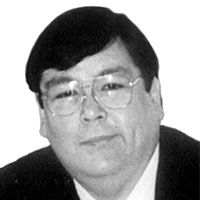The world, especially the Philippines, desperately needs a new economic paradigm

Even before the current financial meltdown, two of the world’s top billionaires have generously shared their wealth and tried to bridge the Wealth Gap.
Warren Buffett made the first dramatic move. Then, last January, Bill Gates followed when he delivered his ‘Creative Capitalism’ speech in the World Economic Forum in Davos, Switzerland.
During the MAP (Management Association of the Philippines) event two weeks ago, Jaime Augusto Zobel de Ayala extolled ‘Creative Capitalism’ in the 21st century as advocated by Bill Gates.
Timothy B. Lee (a computer scholar whose writings have been featured several times in the New York Times) described ‘Creative Capitalism’ as Profit plus Philanthropy.
Lee wrote: “In one sense, Gates is following in a long tradition of successful entrepreneurs becoming philanthropists. After making his fortune in the steel industry, Andrew Carnegie argued that the wealthy have an obligation to use their wealth for the benefit of society. And he was true to his word, spending millions of dollars to promote the spread of literacy, culture, and higher education.”
“But Gates’ approach differs from Carnegie’s in two important ways. First, Carnegie viewed business and philanthropy as separate endeavors, while Gates is urging business leaders to integrate philanthropy into their business efforts. Second, while Carnegie’s philanthropy focused on the United States and his native Scotland, Gates has turned his attention to the much more serious challenge of addressing global poverty,” Lee added.
Both Andrew Carnegie and Bill Gates and the many entrepreneurs like them deserve to be commended and emulated for their generosity and their compassion for those members of society who have been left behind.
Gates hit the nail on the head when he said in his Davos speech: “I believed that breakthroughs in technology could solve the key problems. And they do — increasingly — for billions of people.
But breakthroughs change lives only where people can afford to buy them — only where there is economic demand.
And economic demand is not the same as economic need.
There are billions of people who need the great inventions of the computer age, and many more basic needs as well. But they have no way of expressing their needs in ways that matter to markets. So they go without.”
Bill Gates further described the imbalance he saw in the world: “The world is getting better, but it’s not getting better fast enough, and it’s not getting better for everyone.”
“The great advances in the world have often aggravated the inequities in the world. The least needy see the most improvement, and the most needy see the least — in particular the billion people who live on less than a dollar a day,” Gates added.
Gates also said: “Diseases like malaria that kill over a million people a year get far less attention than drugs to help with baldness.
Not only do these people miss the benefits of the global economy — they will suffer from the negative effects of economic growth they missed out on. Climate change will have the biggest effect on people who have done the least to cause it.”
“Why do people benefit in inverse proportion to their need?” Gates asked.
He answered his own question: “Market incentives make that happen. In a system of pure capitalism, as people’s wealth rises, the financial incentive to serve them rises. As their wealth falls, the financial incentive to serve them falls — until it becomes zero. We have to find a way to make the aspects of capitalism that serve wealthier people serve poorer people as well.”
Gates saw two great forces of human nature: self-interest, and caring for others. “Capitalism harnesses self-interest in helpful and sustainable ways, but only on behalf of those who can pay. Philanthropy and government aid channel our caring for those who can’t pay, but the resources run out before they meet the need. But to provide rapid improvement for the poor we need a system that draws in innovators and businesses in a far better way than we do today,” He said.
The advocacies and efforts of Warren Buffett, Bill Gates and our own Jaime Augusto Zobel de Ayala together with all those firms who already practice Corporate Social Responsibility (CSR) are to be lauded, emulated and propagated.
However laudable their efforts may be, still they are likely to fall short of their ultimate objective (no man left behind) and end up being a case of good intentions with a mechanism that was not good enough.
The reason I say this is because Carnegie’s, Buffett’s and Gates’ formula center on the failed philanthropy approach to bridging the Wealth Gap. Social scientists have long discovered that philanthropy and its new form — CSR — follow a low return road.
History tells us that the process of redistributing wealth is very complex and often fails. We already know three failed basic attempts at bridging the Wealth Gap:
1. There was the European welfare state.
2. Then we had the US philanthropy model.
3. That was followed by the Communist/Socialist State.
Nowadays, many noble intentions and attempts to alleviate poverty fail and are not sustained because of the absence of values reform. Most of those in a state of poverty need more than just financial aid. They need to reform their values.
However, values reform is not at all possible sans the dimension of proximity and reciprocity — the missing elements in the three previously tried solutions to the Wealth Gap.
* * *
Chair Wrecker e-mail and website: macesposo@ yahoo.com and www.chairwrecker.com
- Latest
- Trending





























